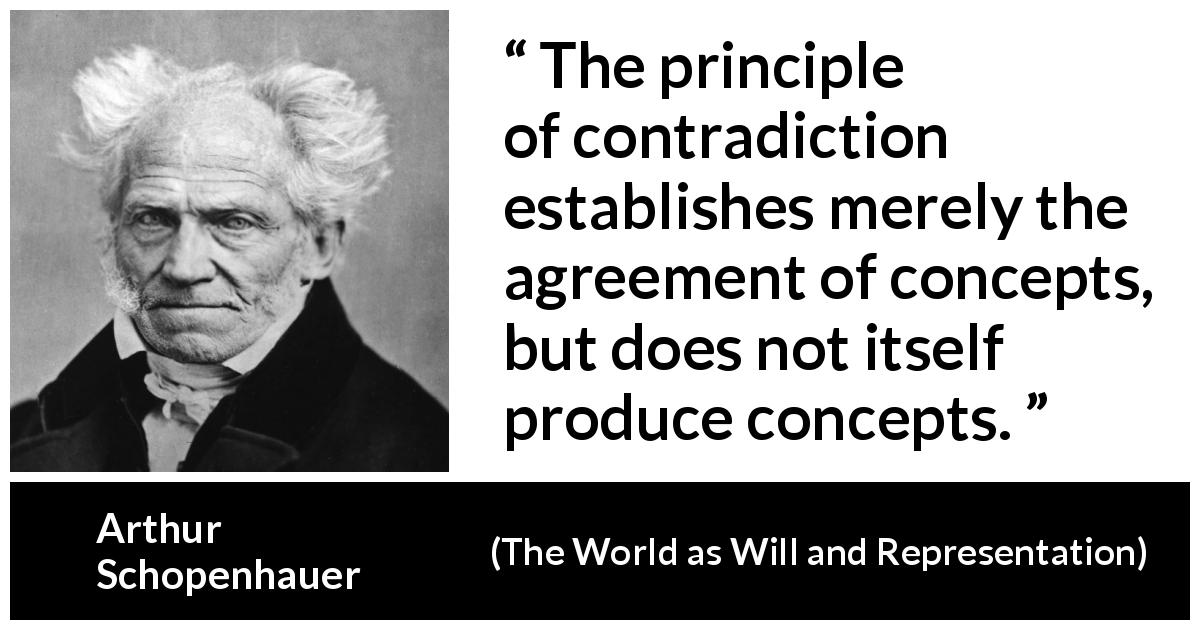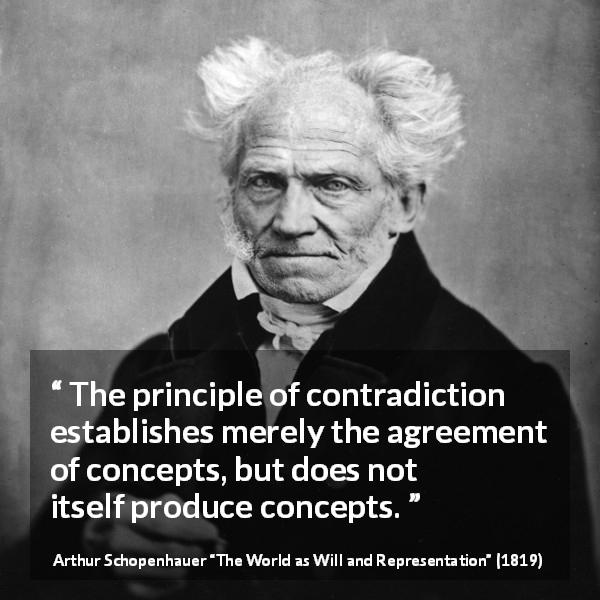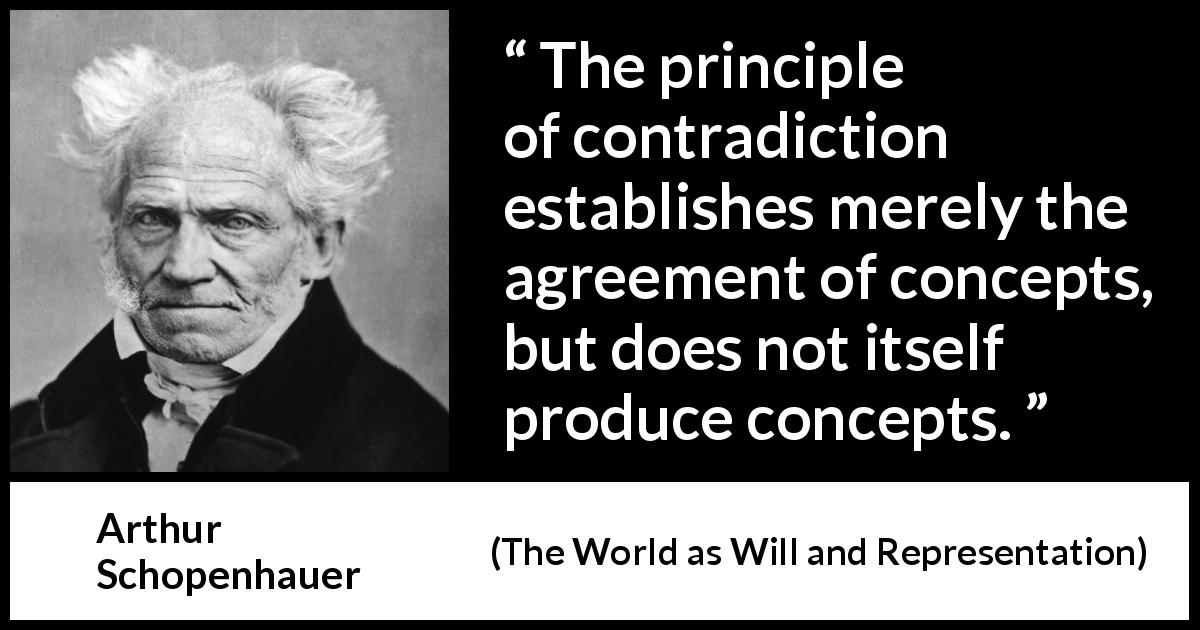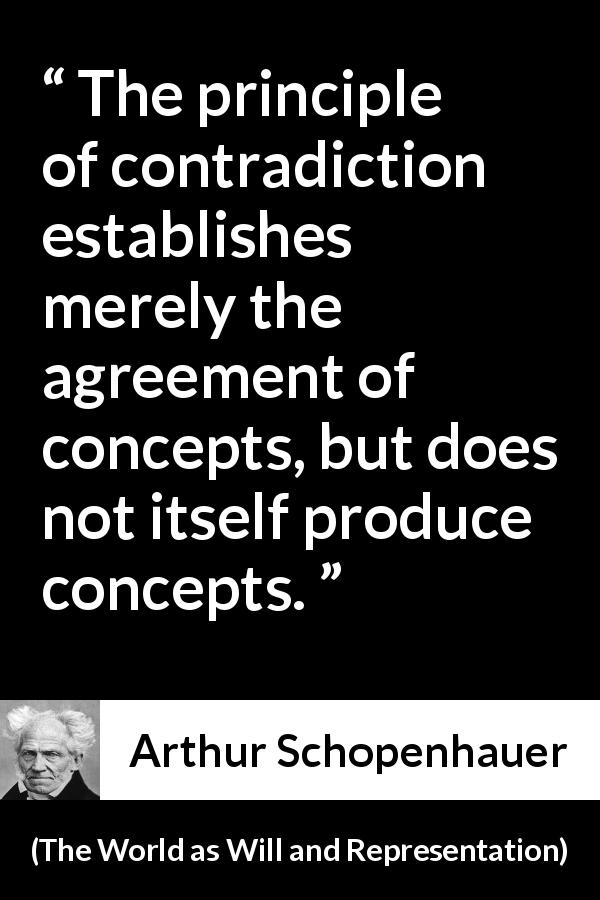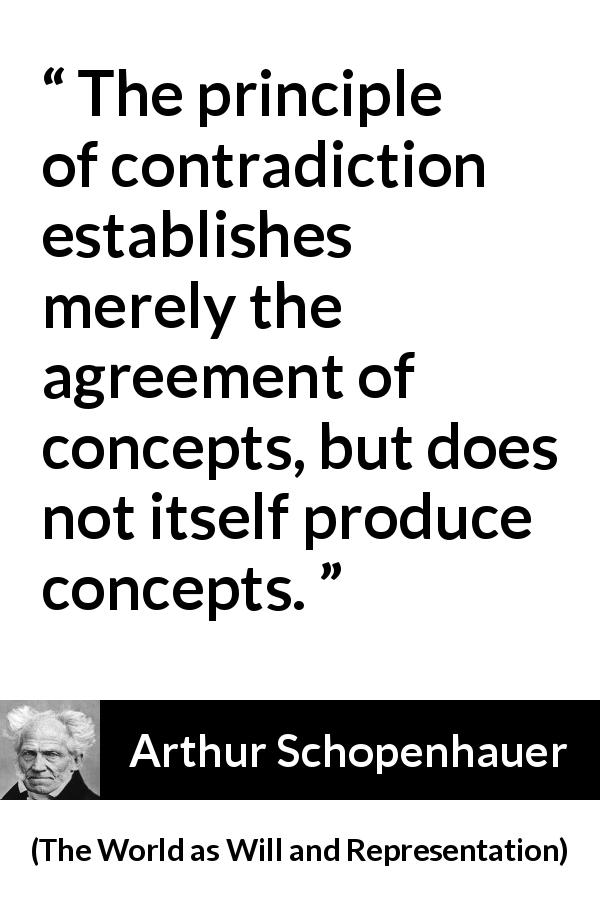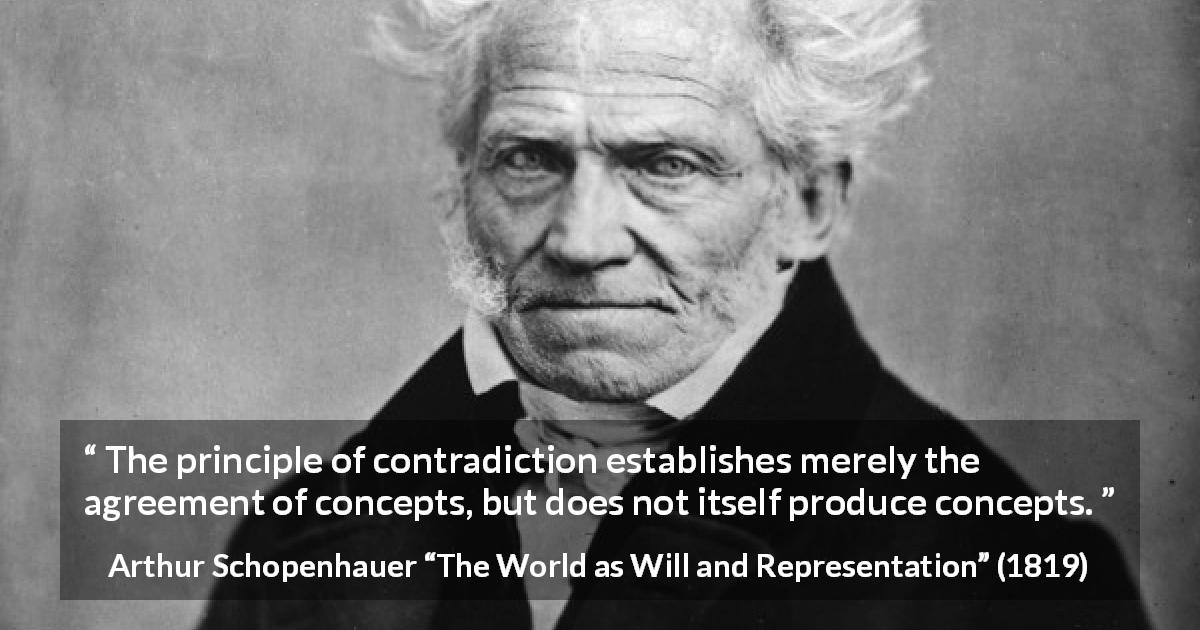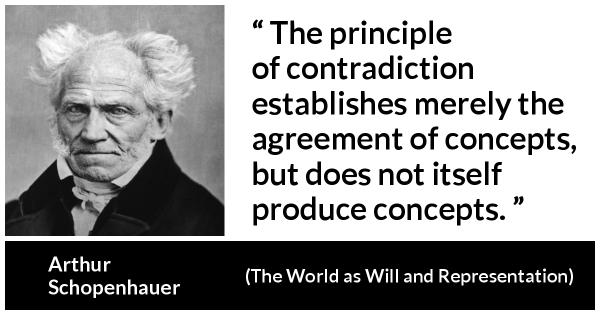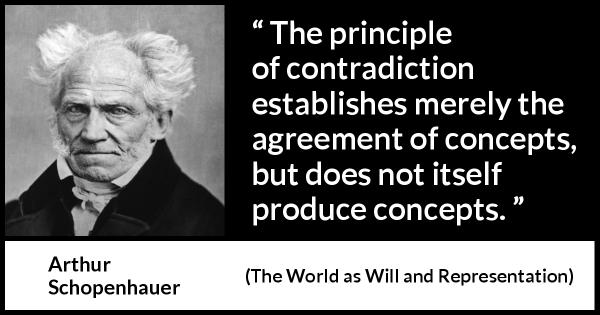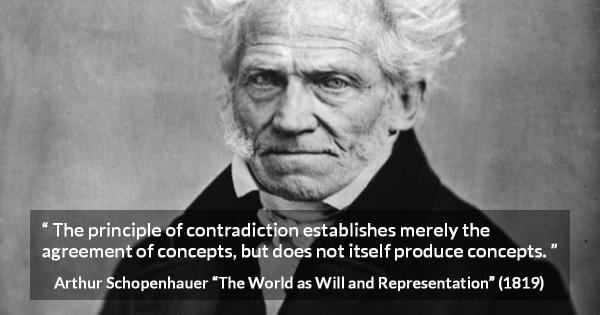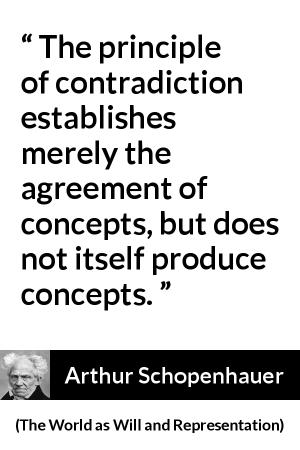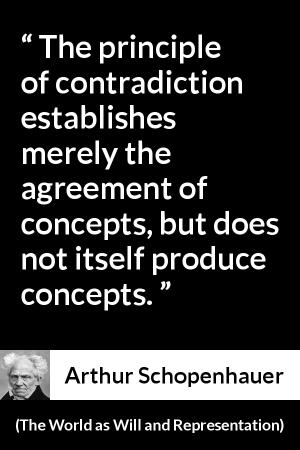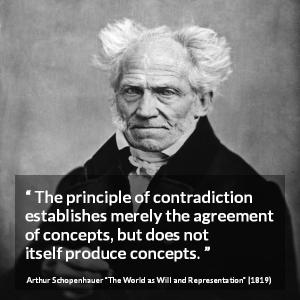“ The principle of contradiction establishes merely the agreement of concepts, but does not itself produce concepts. ”
Arthur Schopenhauer, The World as Will and Representation (1819). copy citation
| Author | Arthur Schopenhauer |
|---|---|
| Source | The World as Will and Representation |
| Topic | contradiction creativity concept |
| Date | 1819 |
| Language | English |
| Reference | |
| Note | Translated by R. B. Haldane and J. Kemp |
| Weblink | http://www.gutenberg.org/files/38427/38427-h/38427-h.html |
Context
“There can be no principle in consequence of which the world with [pg 108] all its phenomena first came into existence, and therefore it is not possible to construct, as Spinoza wished, a philosophy which demonstrates ex firmis principiis. Philosophy is the most general rational knowledge, the first principles of which cannot therefore be derived from another principle still more general. The principle of contradiction establishes merely the agreement of concepts, but does not itself produce concepts. The principle of sufficient reason explains the connections of phenomena, but not the phenomena themselves; therefore philosophy cannot proceed upon these principles to seek a causa efficiens or a causa finalis of the whole world.”
source
